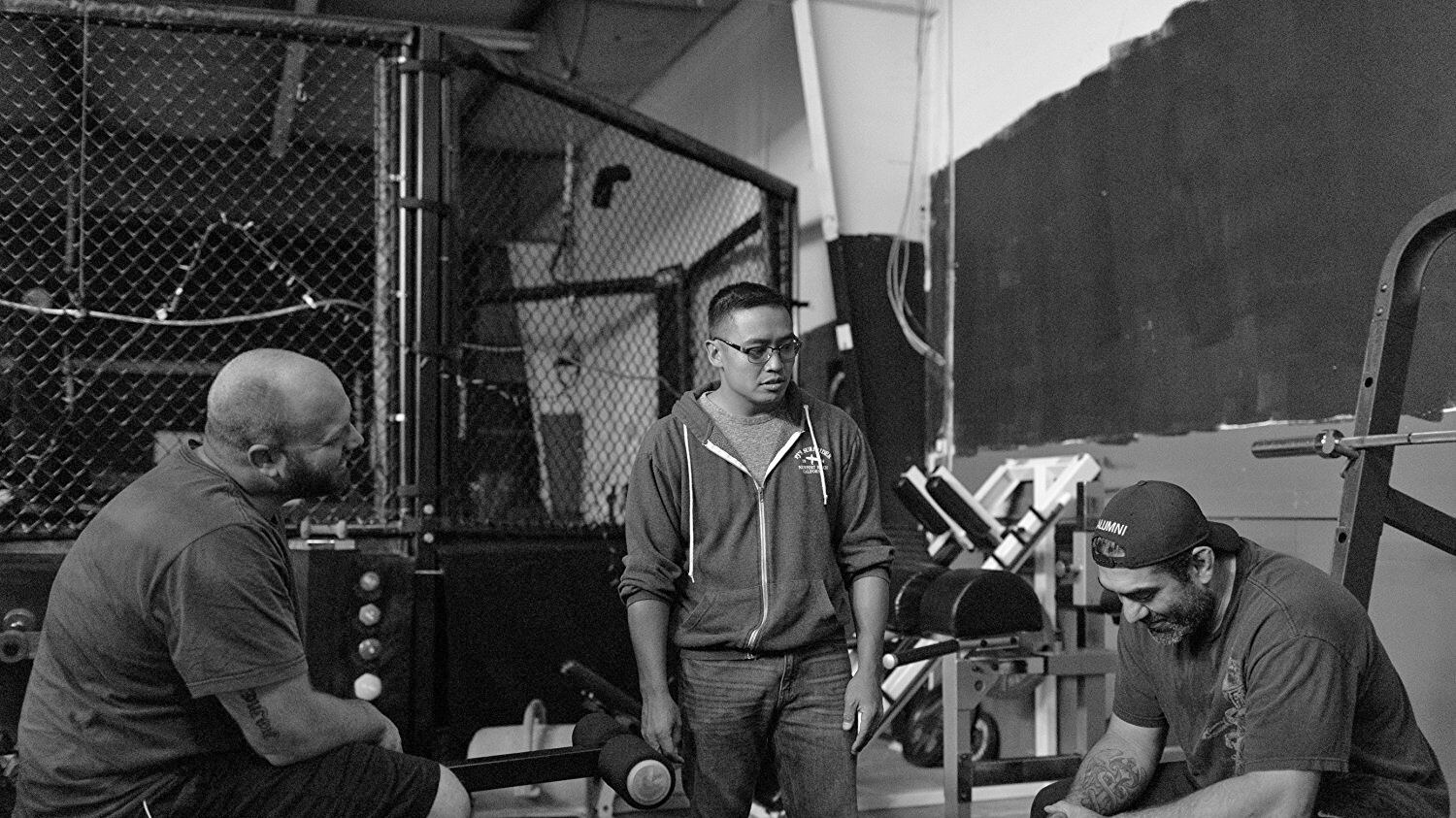When documentary filmmaker Jeff Unay first met Joe Carman, he discovered the middle-aged mixed martial arts fighter had a secret.
"He said, 'My wife doesn't even know I'm training right now. My family doesn't know I'm training,'" Unay remembers. "I wondered, 'Oh my God, he's got four daughters. What would it be like for him to finally confess? I should be there.'"
That meeting began Unay's quest to capture Carman fighting both his MMA opponents and a family terrified for his safety. The Cage Fighter is the result. It was a difficult production that found Unay testing the limits of documentary filmmaking, thrusting his Red One MX camera into the midst of the warring Carman family and battling painful memories from his own childhood that the making of the film aroused. But for Unay—who, like Carman, lives in Washington state—The Cage Fighter turned out to be a mesmerizing portrait of a man torn between his duty as a father and the allure of the arena.
Unay, who shot The Cage Fighter from 2013 to 2017, decided to eschew two traditional documentary trappings: voice-overs and interviews. "There were many, many days," Unay admits, "when I had painted myself into a corner and would say, 'Aw, shit! It would be so much easier just to say this thing in voice-over.'"
Yet his instincts proved creatively fruitful. Without the crutch of cozy musings, Carman's harrowing experiences—including an unsettling scene in which he collapses during training and has to be force-fed Gatorade—seem so real you can practically feel his pain in your bones.
The Cage Fighter put Unay in the center of a family seemingly on the verge of implosion. Carman's wife, Norinda Reed, ultimately found out about Carman's surreptitious return to MMA. When she did, her reaction was volcanic. One argument about a potential divorce became so vicious Unay, who was also the film's cinematographer, couldn't shoot it. "They were yelling and screaming upstairs," he recalls, "and Joe was begging and pleading and telling her, 'I need to fight right now, I just really need to do this.' And she was saying, 'I'm going to leave you.' And I chose not to film."
It was Reed who set the narrative course of The Cage Fighter by asking Carman if he was fighting to prove something to his father. "I remember thinking, 'What the fuck? Where did that come from?'" Unay says. He now believes the abuse Carman endured at the hands of his alcoholic father fueled his desire to become a fighter, a realization that molded the film into a story "about our past experiences with our mothers and fathers and how that molds us into being the parents that we are."
Delving into that idea dredged up Unay's memories of his own father, whom he describes as an occasionally violent gambling addict. While driving home after filming, Unay says he sometimes felt so emotionally disturbed he would call his brother to reflect on traumatic childhood moments, like the time he nearly got into a fistfight with his father. "I dedicated this film to my father," Unay says. "It's not in honor of him, it's 'I was able to make this film because of you, because of the experience I had growing up.'"
While The Cage Fighter hints that Carman may ultimately decide to put his family before his career as a fighter, Unay says, "I knew that I could not end this film by saying, 'He's now totally done, he'll never fight again,' because I just don't feel like that would be the truth."
Yet he still feels a kinship with Carman. "I was one of the few people—if not the only person—in Joe's life at that time who wasn't judging him for his decision to fight," Unay explains. "He would tell me, 'Yeah, I gotta fight,' and I would tell him, 'Hey, man, I work a day job, but I love film and I've made films. You want to be a fighter and I want to be a filmmaker. I get what you're going through.'"
SEE IT: The Cage Fighter with director Jeff Unay in attendance is at NW Film Center's Whitsell Auditorium, 1219 SW Park Ave., nwfilm.org. 7 pm Thursday, May 10. $9.
